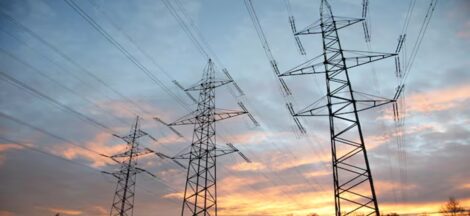NEW DELHI: A staggering investment of Rs 30 lakh crores is required over the period spanning next six years from 2024 to achieve India’s Nationally Determined Contributions (NDC) goals by 2030. This was stated by Pradip Kumar Das, Chairman and Managing Director (CMD) of the Indian Renewable Energy Development Agency Ltd (IREDA) recently.
He explained that this substantial investment is essential to drive progress in various sectors crucial for meeting India’s climate and environmental targets. Such investment would likely be allocated towards initiatives aimed at renewable energy expansion, energy efficiency enhancements, emission reduction measures, sustainable infrastructure development, and other climate mitigation and adaptation strategies, he added..
“This investment is crucial for various sectors including manufacturing capacity for Solar, Electrolysers, Wind & Battery, as well as Transmission, Green Hydrogen, Solar, Hydro, Wind, and Waste to Energy,” Das said while participating in an international webinar organized by The World Bank.
The webinar coincided with the release of the latest South Asia Development Update titled “Toward Faster, Cleaner Growth” on February 14, 2024.
Das also highlighted the significance of the “PM Surya Ghar Muft Bijli Yojana,” a rooftop solar scheme launched by Prime Minister Narendra Modi on February 13, 2024.
This visionary project, backed by an investment exceeding Rs 75,000 crores, aims to solarize 1 crore households by providing up to 300 units of free electricity every month.
Das emphasised that this initiative will not only provide substantial benefits but also raise awareness about renewable energy among the populace, contributing to India’s ambitious goal of achieving Net-Zero emissions by 2070 and energy independence by 2047.
Furthermore, Das also praised India’s exemplary role in renewable energy development worldwide, highlighting various government initiatives such as Renewable Purchase Obligations (RPO), the PM-KUSUM scheme, ‘Must-run’ status for RE assets, PLI scheme for Solar PV manufacturing, and the allowance of up to 100% FDI under the automatic route for renewable energy.
He emphasised that as India strives to become the third-largest economy in the next three years and a developed country by 2047, renewable sources are expected to meet approximately 90 per cent of the energy demand.
Besides Das, other notable speakers at the webinar included Special Representative to the UN and the WTO, World Bank, Maria Dimitriadou; Chief Economist, South Asia Region, World Bank, Franziska Ohnsorge; Economist, Prospects Group, World Bank, Philip Kenworthy; and Green Technology and Research manager, WIPO GREEN, Peter Oksen.
This initiative underscores the collective efforts towards sustainable and cleaner energy solutions for India and the world.
Source: The Pioneer



